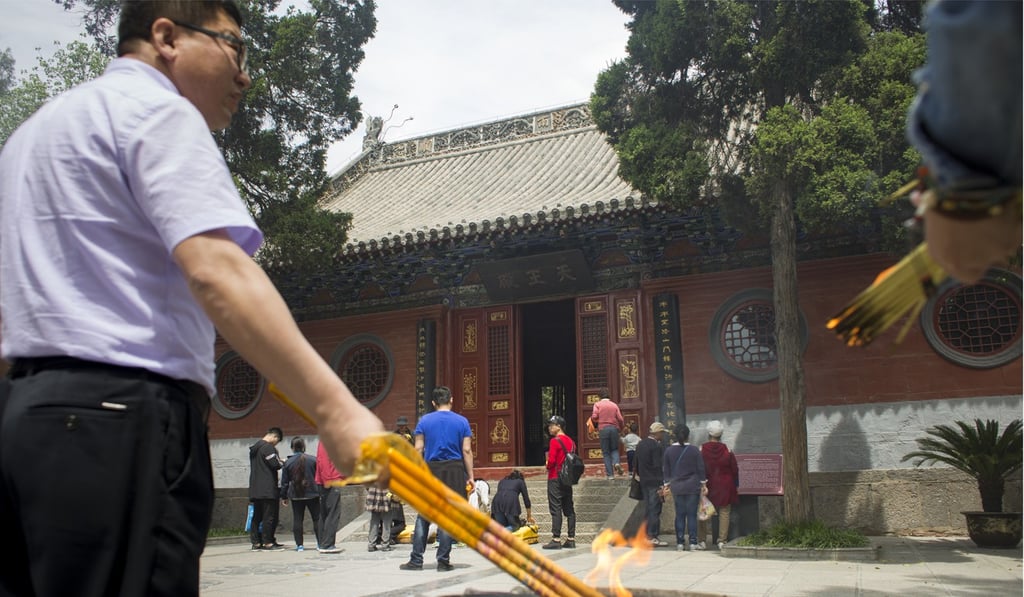Advertisement
China’s quest for soft power: where Confucius has failed, the Buddha may succeed
Patrick Mendis says Beijing should reach into its shared Buddhist heritage with its neighbouring countries for the basis of a China model that has universal appeal, and a new Pacific world order that is built on peace
Reading Time:4 minutes
Why you can trust SCMP

Sri Lanka will soon inaugurate the 350-metre-high Chinese-built Lotus Tower in Colombo, the tallest telecoms tower in South Asia. The tower, emanating from the Lotus Sutra in Buddhism, can provide inspiration for China to formulate a sustainable and peaceful “soft power” strategy that would appeal globally.
Religion has a mutually beneficial effect on people and state, especially in civilisational polities like China and Sri Lanka.
President Xi Jinping has embraced religious faith as part of his “Chinese Dream” and the “Belt and Road Initiative”. The nominally atheist Chinese Communist Party has now recognised that religion in Chinese history was a powerful tool in domestic governance and international diplomacy. For Xi’s “rejuvenation” of the Chinese nation and national culture after the “century of humiliation”, this mix of faith and politics constitutes a “re-imagining of the political-religious state that once ruled China”, according to Ian Johnson, author of The Souls of China.
Advertisement
When Xi Jinping’s father, Xi Zhongxun, was head of the party’s religious work beginning in 1980, China’s Central Committee issued the famous Document 19 warning party members against banning religious pursuits because it would isolate the Chinese people. Ever since, China has been restoring places of worship destroyed in the Cultural Revolution.

Advertisement
After years of material development through the reform and opening-up polices, China now wishes to realise a “virtuous and harmonious society” at home and to create a “global community of shared destiny”. If the people have faith, Xi believes, the nation has hope, and the country has strength to do it.
Advertisement
Select Voice
Choose your listening speed
Get through articles 2x faster
1.25x
250 WPM
Slow
Average
Fast
1.25x